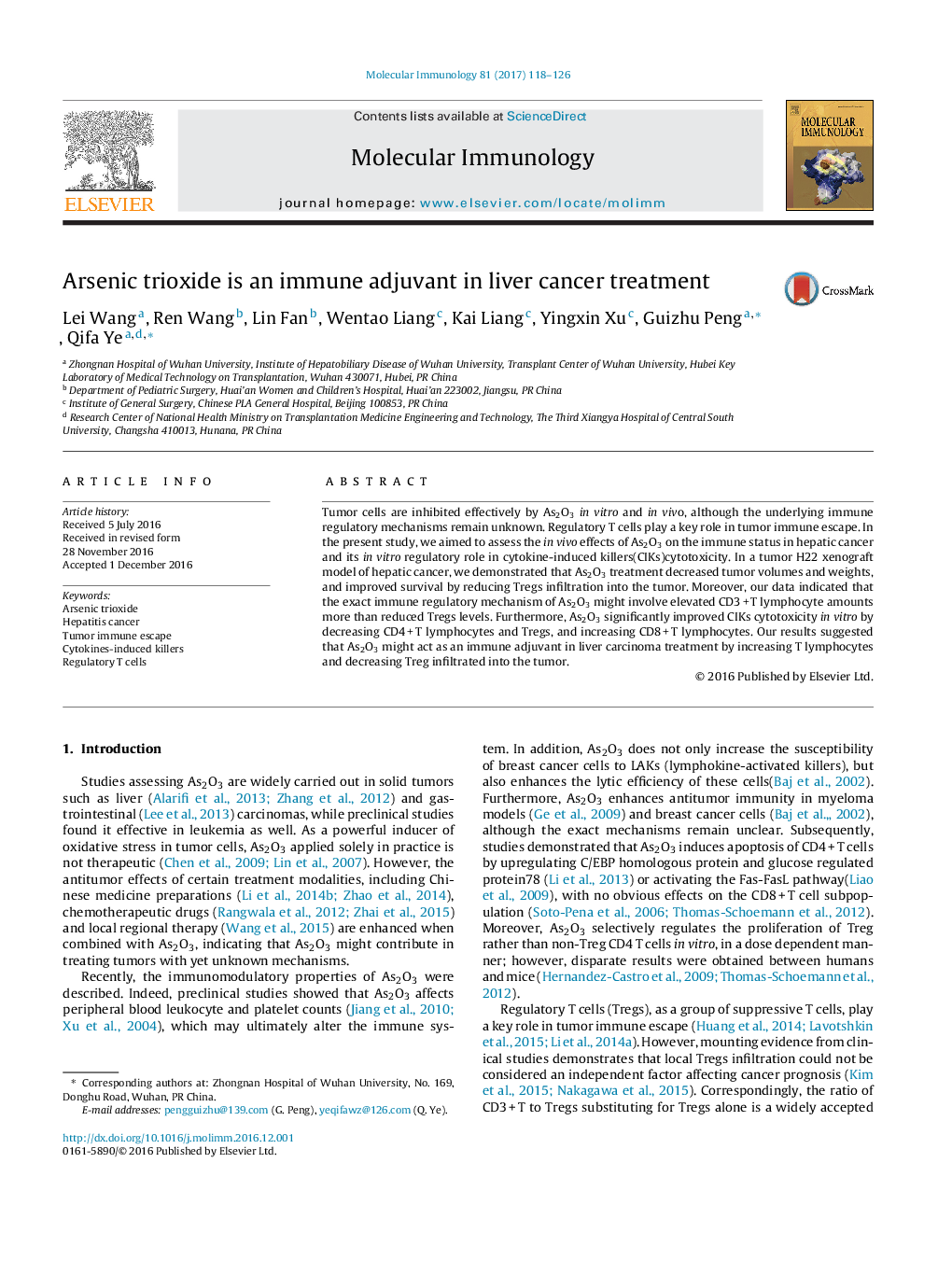| Article ID | Journal | Published Year | Pages | File Type |
|---|---|---|---|---|
| 5592080 | Molecular Immunology | 2017 | 9 Pages |
Abstract
Tumor cells are inhibited effectively by As2O3in vitro and in vivo, although the underlying immune regulatory mechanisms remain unknown. Regulatory T cells play a key role in tumor immune escape. In the present study, we aimed to assess the in vivo effects of As2O3 on the immune status in hepatic cancer and its in vitro regulatory role in cytokine-induced killers(CIKs)cytotoxicity. In a tumor H22 xenograft model of hepatic cancer, we demonstrated that As2O3 treatment decreased tumor volumes and weights, and improved survival by reducing Tregs infiltration into the tumor. Moreover, our data indicated that the exact immune regulatory mechanism of As2O3 might involve elevated CD3Â +Â T lymphocyte amounts more than reduced Tregs levels. Furthermore, As2O3 significantly improved CIKs cytotoxicity in vitro by decreasing CD4Â +Â T lymphocytes and Tregs, and increasing CD8Â +Â T lymphocytes. Our results suggested that As2O3 might act as an immune adjuvant in liver carcinoma treatment by increasing T lymphocytes and decreasing Treg infiltrated into the tumor.
Related Topics
Life Sciences
Biochemistry, Genetics and Molecular Biology
Molecular Biology
Authors
Lei Wang, Ren Wang, Lin Fan, Wentao Liang, Kai Liang, Yingxin Xu, Guizhu Peng, Qifa Ye,
